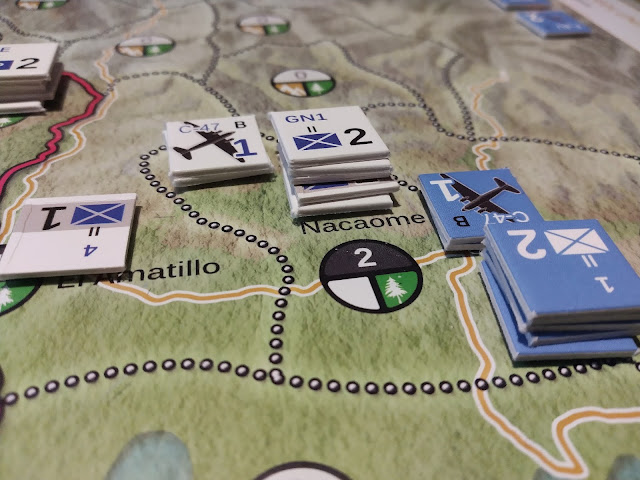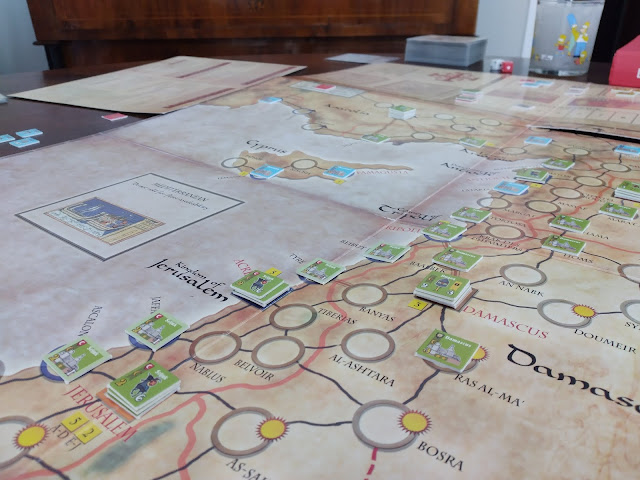Brief Border Wars. The Second Lebanon War: hunting the rocket launcher
Israeli: Laura Beltrami
Hezbollah: Alex Isabelle
What the Israelis call the Second Lebanon War is a rather short conflict, which lasted a month or so: from 12th July to 14th August 2006.
The implicit tragedy of this umpteenth Arab-Israeli conflict is that it is obviously only a fraction of the state of perpetual warfare that has gripped the Middle East since the '40s; as a result, even though this war took place just fifteen years ago, the reader is likely not to remember much of the exact unfolding of this specific chapter of modern history. We will therefore make a brief summary.
The conflict was between the Israeli army and Hezbollah, a militant party born after the first Lebanon war, in 1982, after which Israel had occupied southern Lebanon. Hezbollah received aid from Iran and increased its power by attacking Israeli forces and occasionally American and French forces that supported them. In 2000 Israel left the territory; Hezbollah then settled there definitively, becoming a de-facto state in its own right, and continued its activities by attacking the Israeli militias along the border. This went on until 2006, when a particularly well-orchestrated raid, which began with the launch of several rockets across the border and continued with the attack on two Humvees, led to the death of eight soldiers and the kidnapping of two others. Determined to solve the problem once and for all, the Israelis launched their offensive.
 |
| The scenario at the beginning of the game. |
Our game begins on the hottest moment of this offensive, which is July 20, 2006, when Israel launched a great offensive and began calling large numbers of reservists, discovering that Hezbollah was a much better trained opponent than expected.
In our case, the offensive began at the easternmost point of the Israeli-Lebanese border: several mechanized troops crossed the border reaching the village of Markaba, where one of the many Hezbollah missile units was located. The Israelis immediately started evicting the region, which aroused the anger of their opponents: Hezbollah started firing rockets wildly across the border, sowing a large number of casualties and infratructural damage. This went on for a couple of days, after which, either due to technical failures, or because ammunition was running low, almost all missile units ceased their activities.
 |
| The israeli reserves. |
Here Israel has thought, in order not to alarm the public opinion, to do without the reserves, avoiding to summon them and trying to clean up Hezbollah only by means of the regular forces. The five mechanized divisions, accompanied by the airborne infantry service, then proceeded south-west, pacifying the towns of Chaqra, Srife and Tebnine.
In the meantime, the main issue related to this strategic option emerged: without calling the reservists it would have been extremely difficult to maintain control of these regions, because as soon as the troops had moved away other Hezbollah guerrillas hiding among the population would have returned immediately in control of the territory. And there was a second problem: the amount of victims sown by the rockets launched towards Israel was so high that it would have required the occupation of even more territory than initially planned, in order to give an irreproachable demonstration of the Israeli military superiority.
 |
| The rockets hit Israeli territory. |
Unbeknownst to the Israelis, though, in those days a certain panic was sown among the ranks of Hezbollah: in spite of the limited military forces deployed, the Israeli military response, which among other things had hit numerous Lebanese civilians, proved to be resolute enough to make the Shiite leadership hesitate. For several days, therefore, the new irregular Hezbollah troops did not reach the battlefield, and the Israelis unexpectedly could continue their march south: Bint Jbeil and Ain Ebel were quickly liberated, while in Rmaych, Ayta ash Shab and Qana the militias managed to withstand the impact with the Israeli soldiers, slowing down their momentum and starting a fight to the death for the control of the territory and the defense of the rocket launchers.
This resilience was the start of the second Hezbollah offensive, ushered in by a couple of days of missile bombing. All the rocket units received supplies, and new civilian casualties on the Israeli side of the border added to the casualties of the first days of war. This further infuriated the Israeli citizens, forcing the defense forces to carry out new attacks, which however proved very hard to undertake.
 |
| The initial success of the israeli offensive. |
Not only, in fact, were Israeli soldiers now spread over a large territory entirely controlled by Hezbollah, to the point that it was getting difficult to understand where to direct the air raids among the various available options: now in all the territories previously liberated and abandoned by Israeli troops irregular Shiite soldiers reappeared, sleeping cells clearly hidden in the same cities that had just been liberated.
Although the presence of Israeli soldiers in Lebanese territory was a thing, the fact that now there was practically not a single territory completely under the control of the defense forces completely nullified the results obtained by the latter during the previous weeks.
On August 14, at the moment of the ceasefire imposed by the United Nations, Israeli troops had to acknowledge Hezbollah's absolute military and political victory.
Do you want to read other stories? Click here for the full list.






Comments
Post a Comment